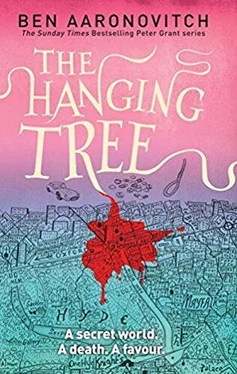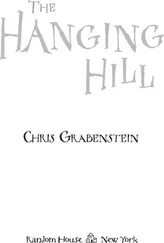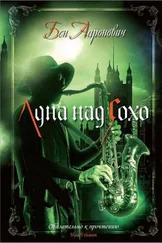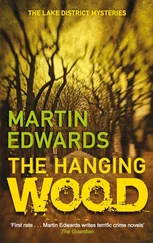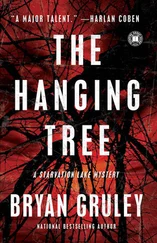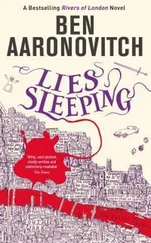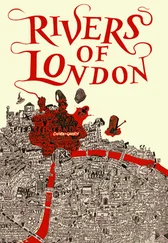There was always the cheerful thought that the Faceless Man, in proper Sith Lord fashion, had trained up someone as his apprentice. But I didn’t think that was likely. If he’d had a fully trained apprentice he wouldn’t have needed Varvara, and if they weren’t trained then I could probably take them.
But if that apprentice was Lesley May?
Which one of us would hesitate the longest, I wondered.
Normally when you TIE a nominal you send the lowest ranking member of the team round to flat out ask the subject to account for their whereabouts. Then, usually, the same lowly minion does all the cross referencing with CCTV, mobile phone records and/or actual living breathing witnesses to verify the alibi. We couldn’t do that with the Faceless Man because we couldn’t predict what he might do if he was tipped off. Since his capability envelope stretched from levelling a house to causing luckless members of the public to throw themselves off tall buildings it was, as Nightingale said, like hunting big game. We needed to stay downwind and undetected until we’d lined up our elephant gun. Since the elephant gun in question was Nightingale, this meant I had to wait until he was free before we could beard any suspects in their lairs.
We started with Albert Pryce. And, because there was an off-chance that Nightingale’s mere presence might spook our quarry, he would remain hidden nearby ready to rush in and put the boot in. My role in that scenario was to race for the exit as fast as possible – taking any potential collateral with me.
Unless Lesley was there, in which case I was supposed to grab her.
As it was, when we tooled up outside Albert Pryce’s six bedroom semi in St John’s Wood he wasn’t even there – which was a bit of an intelligence failure. Fortunately Albertina answered the door and, without prompting, invited me in. I left Nightingale in the Jag contemplating the infinite, doing the crossword in the Telegraph and keeping an ear out for screams.
The house was early Victorian enough to retain some Regency class. Inside it still looked like a place where people actually lived, with framed prints on the walls and bookshelves and furniture that had its corners smoothed off with use. There were signs that money had taken hold in the kitchen, though, sprouting handleless brushed steel cabinets, randomly deformed sink units and work surfaces as cheerfully domestic as a pathology lab.
Albertina was doing her best to humanise it by spreading empty cups, jars with the tops off and knives sticking out, a dealer’s shuffle of brown bread spilling out of its packet and a recyclable plastic bottle of guaranteed organic semi-skimmed milk thoughtfully left in a patch of sunlight.
‘He’s gone to Aberystwyth to see grandma,’ said Albertina and offered me a marmite sandwich. ‘She’s not very happy with dad at the moment.’
I wanted to ask where her dad had been on Friday evening, on the off-chance he’d been dropping a house on me at the time, but I couldn’t think of a way of slipping it into the conversation. Instead I asked why Albertina’s grandma wasn’t happy with him.
‘She doesn’t like the idea of him moving to America,’ said Albertina. ‘She says that she’s only just got used to him living in London.’
‘When did he move to London?’ I asked.
‘Forever ago,’ said Albertina.
Actually, according to my notes, it had been just after he graduated in 1972. But when you’re seventeen forever isn’t a very long time at all.
‘Aberystwyth is miles,’ I said. ‘That’s a bit of a drive isn’t it? Or did he take the train?’
‘Dad doesn’t take the train anymore,’ said Albertina. ‘He says he’s allergic to other people. He drives up – takes him ages.’
‘So when did he set out for Wales, then?
‘Friday morning,’ she said. ‘To avoid the traffic.’ She said it so smoothly I wondered if she’d been coached – but to what end? Still, some poor sod back at Belgravia was going to be spending some time with the ANPR logs to see whether Albert Pryce’s Mercedes M-class had been spotted on the M4, and if so at what time. I hoped it wasn’t going to be me.
‘When are you moving to the States?’ I said, wondering whether we were going to have to ask them politely to stay in the country and what earthly pretext we were going to justify it with.
‘Not until the spring,’ said Albertina. ‘And I’m not going with – this is totally just for him, the Intern and the Replacements.’
The Intern being the woman featured in her father’s acclaimed semi-autobiographical novel, wife number three and mother of the two ‘replacements’ – even now, hopefully, vomiting all over the back seat of their mother’s Toyota as she ferried them from playgroup to kaffeeklatsch to ballet for tiny tots.
‘She’s the one that’s desperate to move back to States,’ said Albertina – and had persuaded her husband that he’d be treated with the respect he deserved there. Not like in London, where no one fully appreciated his genius.
‘Dad’s always been a bit insecure about that,’ said Albertina.
‘He won the Booker prize,’ I said. And had pretty much made the shortlist every year he had a new book out.
Albertina shrugged.
‘He’s haunted by a deep dark secret,’ she said.
‘Yeah?’ I said, trying not to sound overly interested.
‘Yeah,’ she said, and then asked if I liked sci-fi.
I suggested that I was occasionally partial to a bit of SF – you know – when the mood took me.
‘Then you’ll love this,’ she said and took me to see her dad’s study.
If the kitchen had been colonised by the money, then the study had been irretrievably lost to literature a long time ago. Every spare centimetre of the wall space had been covered with shelves, all of which were stuffed with books. It reminded me of my dad’s record collection, which had filled up my parents’ bedroom and pushed every other activity except sleeping out into the rest of their small flat. Which was why my old bedroom was now my mum’s walk-in wardrobe and shoe store. But unlike my dad’s precious vinyl, which has to be stored vertical and absolutely upright in exactly the right sized shelves, here books spilled out onto the floor and across the big hardwood dining room table in the middle of the room that substituted for a desk. Albert Pryce wasn’t averse to using his books as coffee coasters, or to weigh down piles of hardcopy or even as an impromptu building material for shelves where they served to support even more books, an old fashioned boombox and a row of withered potted plants.
‘Have you spotted them yet?’ asked Albertina.
Since I was looking for signs that her dad was an ethically challenged practitioner, I doubted I was looking for whatever she was talking about, and I was just about to say no when I did spot them.
Most of the shelving had enough horizontal spacing to take quite tall books but one unit had clearly been custom built to take small, old fashioned paperbacks. The spines were colourful, smooth and uncracked. I knew the signs – this was a collection, not a library.
I looked at Albertina, who grinned back and said that it was OK for me to touch them.
‘The Intern is totally desperate to leave these behind,’ she said. ‘She had someone in to value them – on the sly.’
I pulled out a book at random – it had a solid yellow spine and a DAW logo. The cover looked like a classic Frazetta or a good imitation – all muscular white men and women in implausibly tight spacesuits with bubble helmets. The title was The Crystal Spires of Mazarin by T.J. Morton. I checked the next book along and found it was the same title – this time the New English Library edition with a cover depicting a strange alien landscape with globular trees and improbably low-hanging planets. A random sample of the rest of the bookcase revealed multiple first paperback editions of three SF writers I’d never heard of – although I was pretty sure I’d read at least a couple of the books – the aforementioned T.J. Morton, Allen Vincent and Carter Houston. There was a lot of Carter Houston, who apparently specialised in mighty thewed barbarians and, if the quotes on the front were to be believed, was favourably compared with Howard’s Conan and John Norman’s Gor .
Читать дальше
